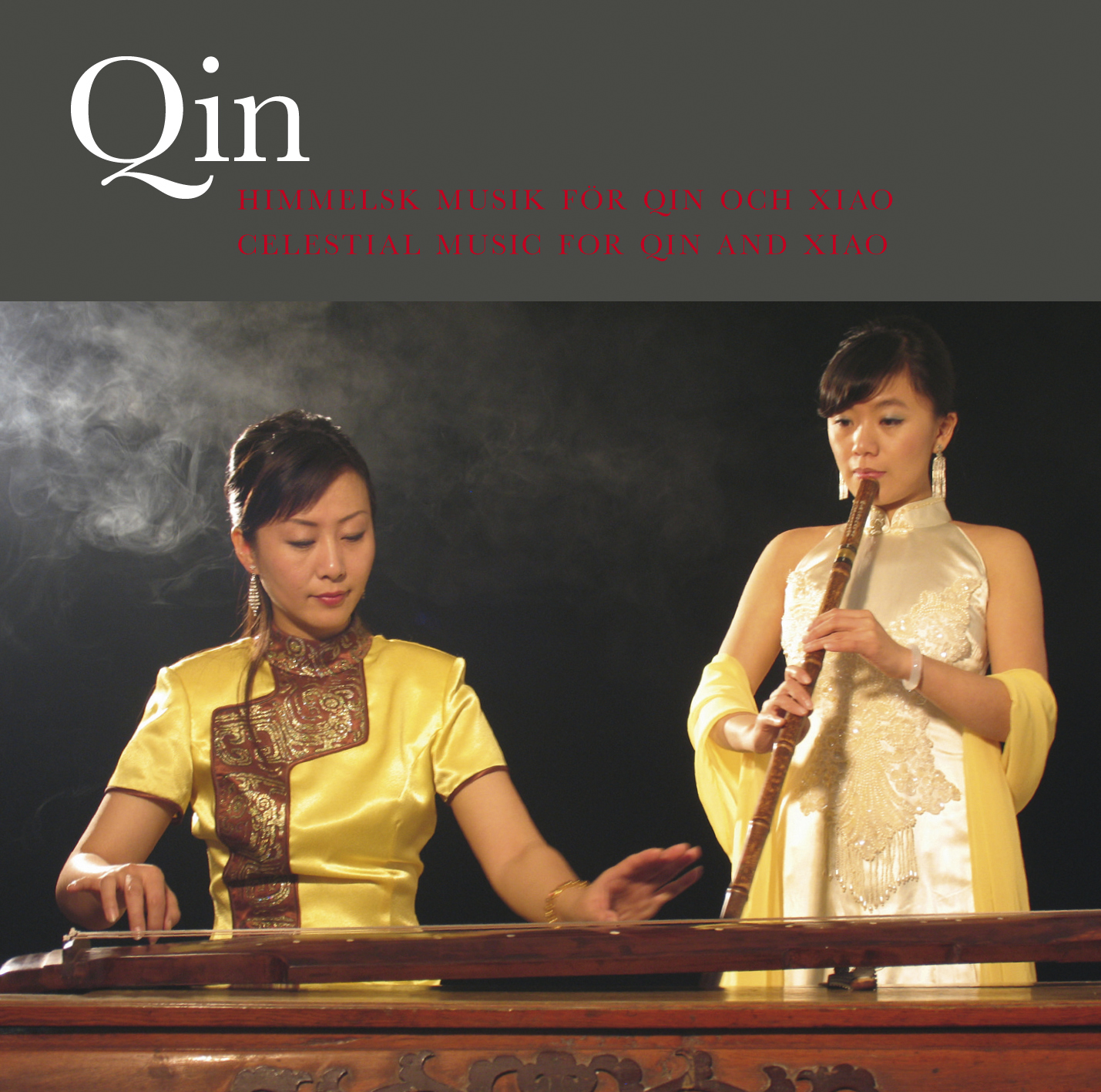Qin: Celestial Music for Qin and Xiao
Deng Hong & Chen Shasha
In 1989, author and Sinologist Cecilia Lindqvist taught Sweden to see the magic of the written Chinese language with the August Award (Sweden’s leading book prize) winning book “China: Empire of Living Symbols”. Now she is going to make us hear the magic of the Chinese instrument qin.
In collaboration with Caprice Records she has made sure to put out a record with the very special classical qin music. In the CD booklet, Cecilia Lindqvist tells the story of the magic instrument. The meditative music is performed by two skilled musicians from China – Deng Hong, playing qin, and Chen Shasha, playing a bamboo flute called xiao and an ocarina called xun.
Qin (pronounced ‘chin’) is a quiet instrument, best suited to be played in solitude or with a good friend who follows the melody on flute. The instrument is difficult to play, and one problem for new beginners is that there is no sheet music of the kind we are used to. The seven strings are made of tightly thrown silk. To obtain the durable silk threads required for the strings, the silkworms are fed a special leaf from the zhe-tree. Qin music is normally not performed in public, which makes the Swedish tour very special.
Throughout history, the instrument has been regarded with immense reverence and celebrated in countless poems. In ancient times, it was used by sorcerers and shamans to avert misfortunes and maintain harmony. From the mid 1960s and decades onwards, qin was considered too elitist in China, but today the instrument is advancing strongly and has reclaimed its role as its country’s foremost national instrument. A few years ago, it was included in UNESCO’s List of Intangible Cultural Heritage.
The musicians, Deng Hong and Chen Shasha, were both educated at the Academy of Music in Beijing and are currently employed by the world famous Chinese National Orchestra.
-
1.Qi Yan Hui (Tears for Yan Hui)5'01
-
2.Liu shui (Flowing Waters)8'49
-
3.Meihua san nong (Three Variations on the Melody Plumblossoms)4'45
-
4.Chunxiao yin (Spring Morning)3'38
-
5.Guanshan yeu (Moon over the Mountain Pass)2'52
-
6.Ping sha luo yan (Wild Geese decending on the Sandbank)7'10
-
7.Yangguan san die (Three Variations on the parting for Yangguan)5'41
-
8.Liang xiao yin (Serene Night)3'57
-
9.Si da jing (Four great Sceneries)4'31
-
10.Ao ai (Creeks of the Oars)7'29
-
- Total playtime 54'02


